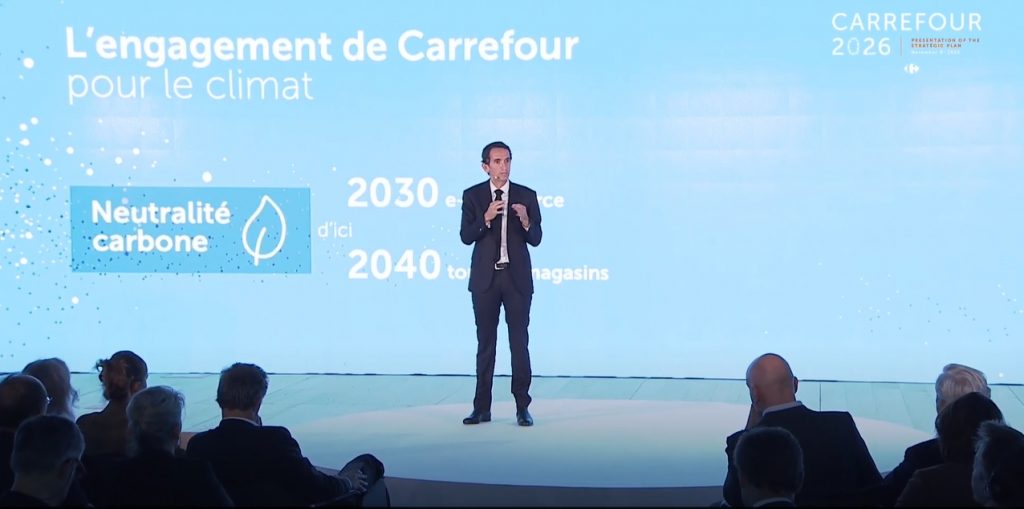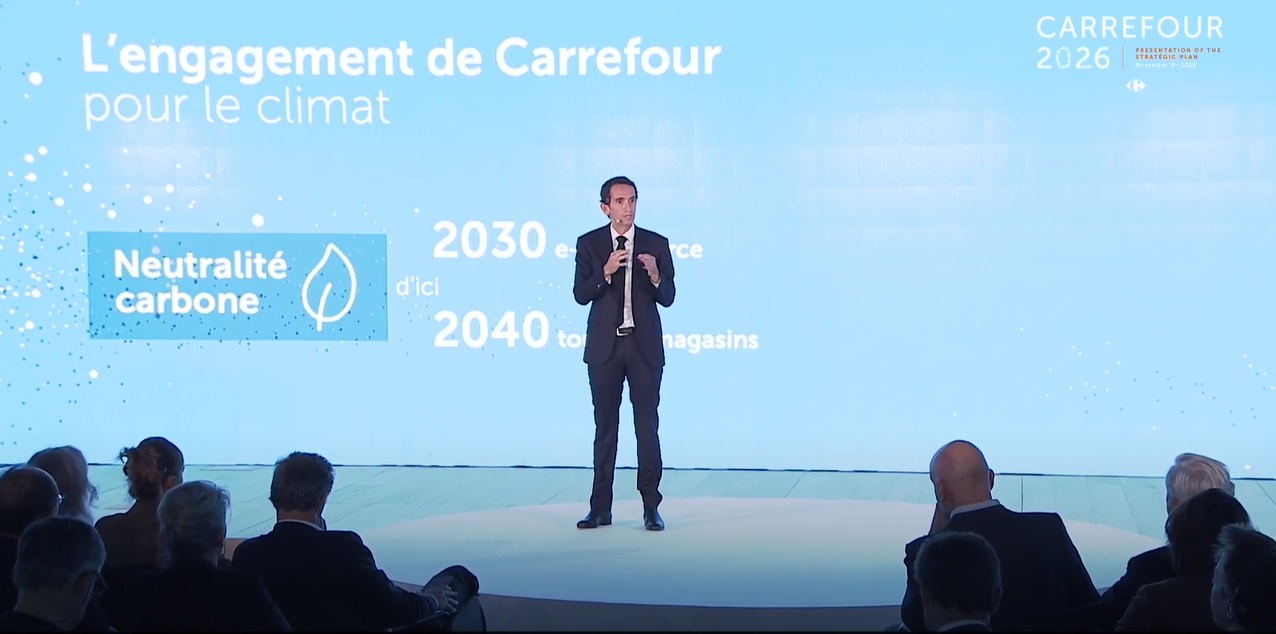Carrefour announces plans to dispense with suppliers not fighting climate change
This decision is part of the company’s new strategic plan for 2026, which aims to accelerate the company’s transformation in the face of an “unprecedented climate, geopolitical and macroeconomic context”.
In this context, the company expects to increase the contribution of its private label to represent 40% of total food sales in 2026, compared to the current 33%. Likewise, it also aspires to achieve sales of €8bn in 2026 of sustainable agriculture products, 40% more than this year.
In addition, Carrefour aims to speed up the development of its low-price stores, with the plan to have 470 Atacadão stores in Brazil by 2026 (200 more than currently) and expand this brand to France in autumn 2023. In Spain, Carrefour will continue expanding its Supeco brand to reach 200 supermarkets in 2026, compared to the 120 it has in all markets today.
The French firm is also looking for a partner for Spain to produce solar energy, with plans to install 4.5 million square metres of solar panels in the car parks of its hypermarkets in France, Spain and Brazil to produce one terawatt hour (TWh) of solar energy per year within five years.
This electricity generation plan will help reduce Carrefour’s energy consumption worldwide by 20% by 2026. That goal will be achieved in France in 2024.
The company’s strategic plan also involves reducing costs by €4bn annually by 2026 through the transformation of all processes through digitisation and a redesign of the organisation. In parallel, annual investments will rise to €2bn, compared to the €1.7bn that had been invested each year until now.
Likewise, in 2023 a share plan will be launched for the company’s 350,000 employees, which will be used, in part, to finance corporate social responsibility projects.




